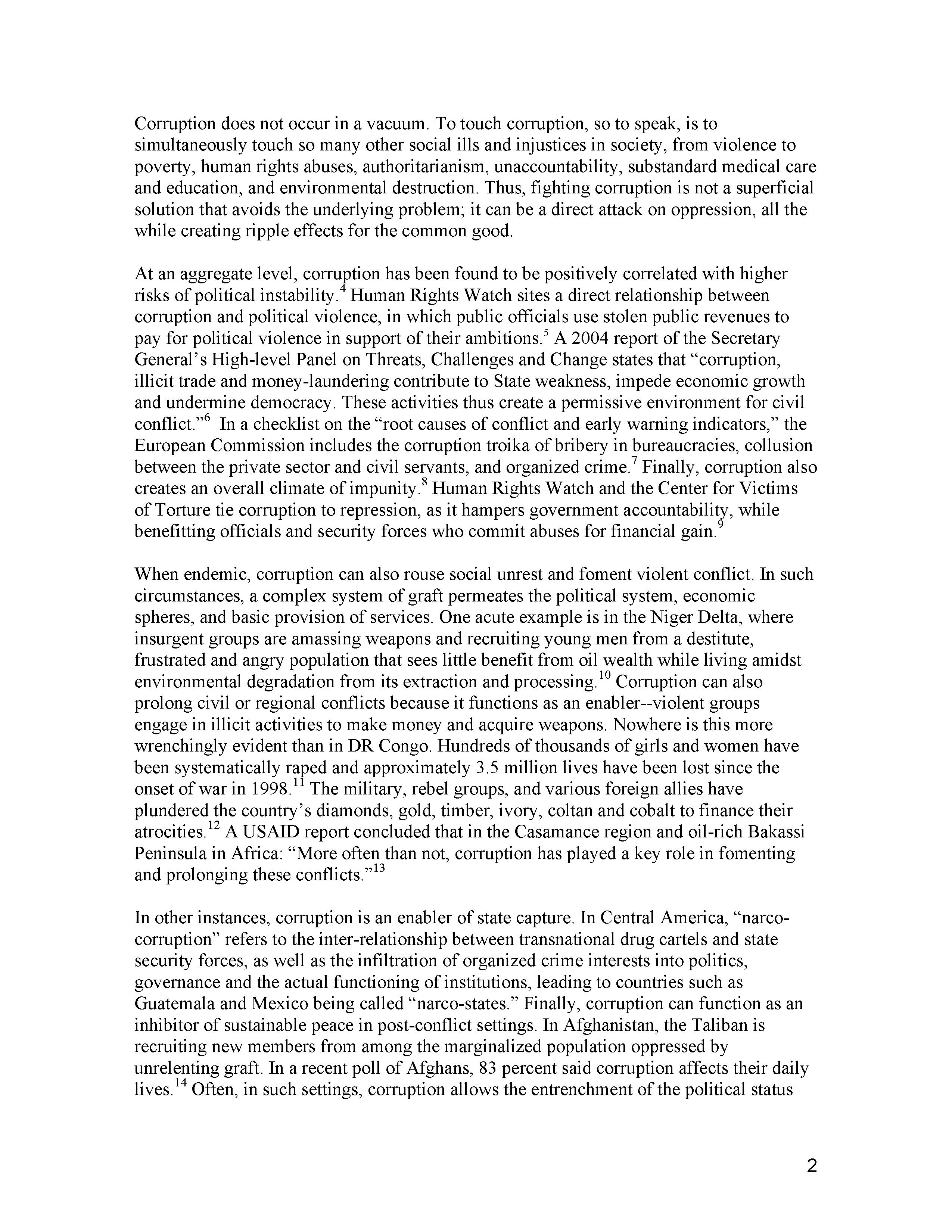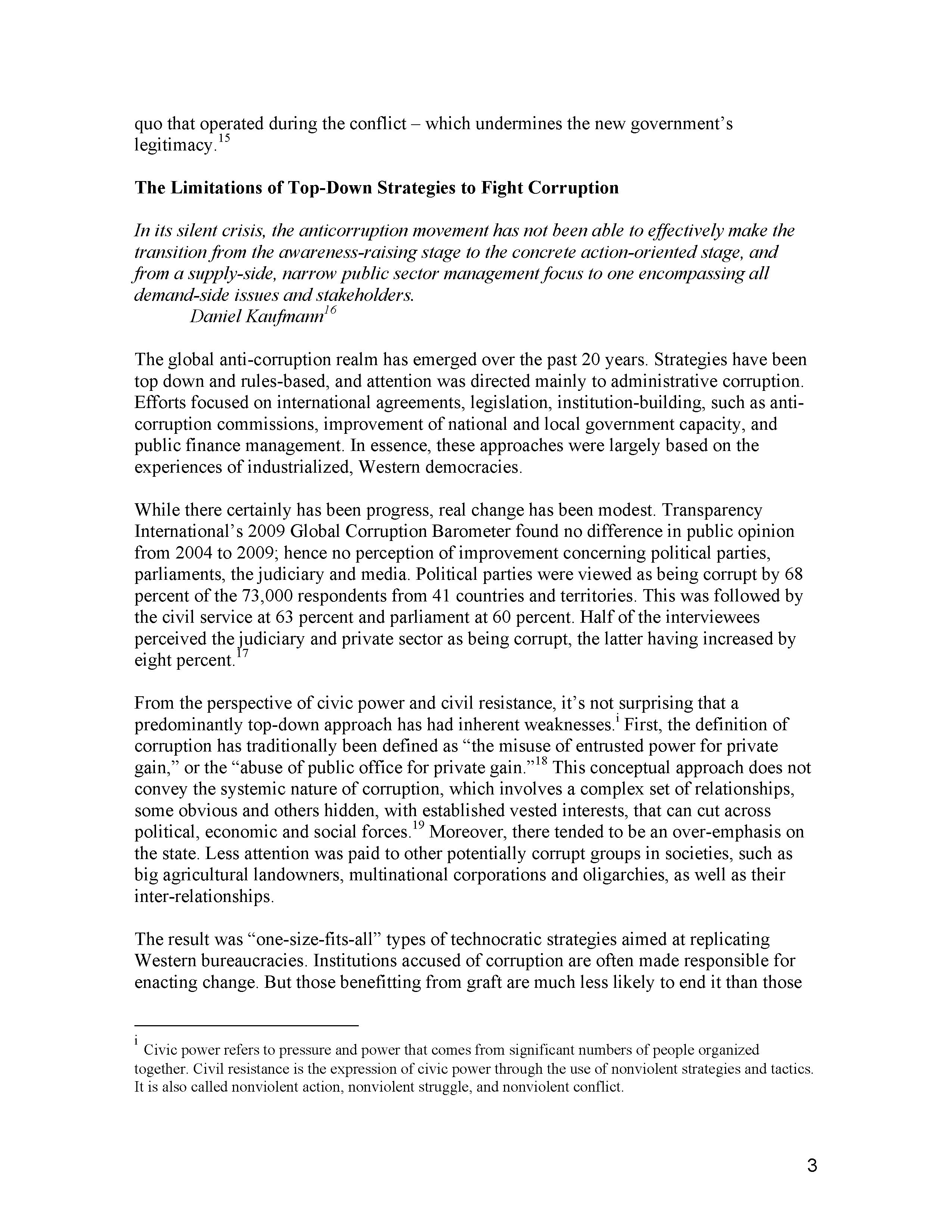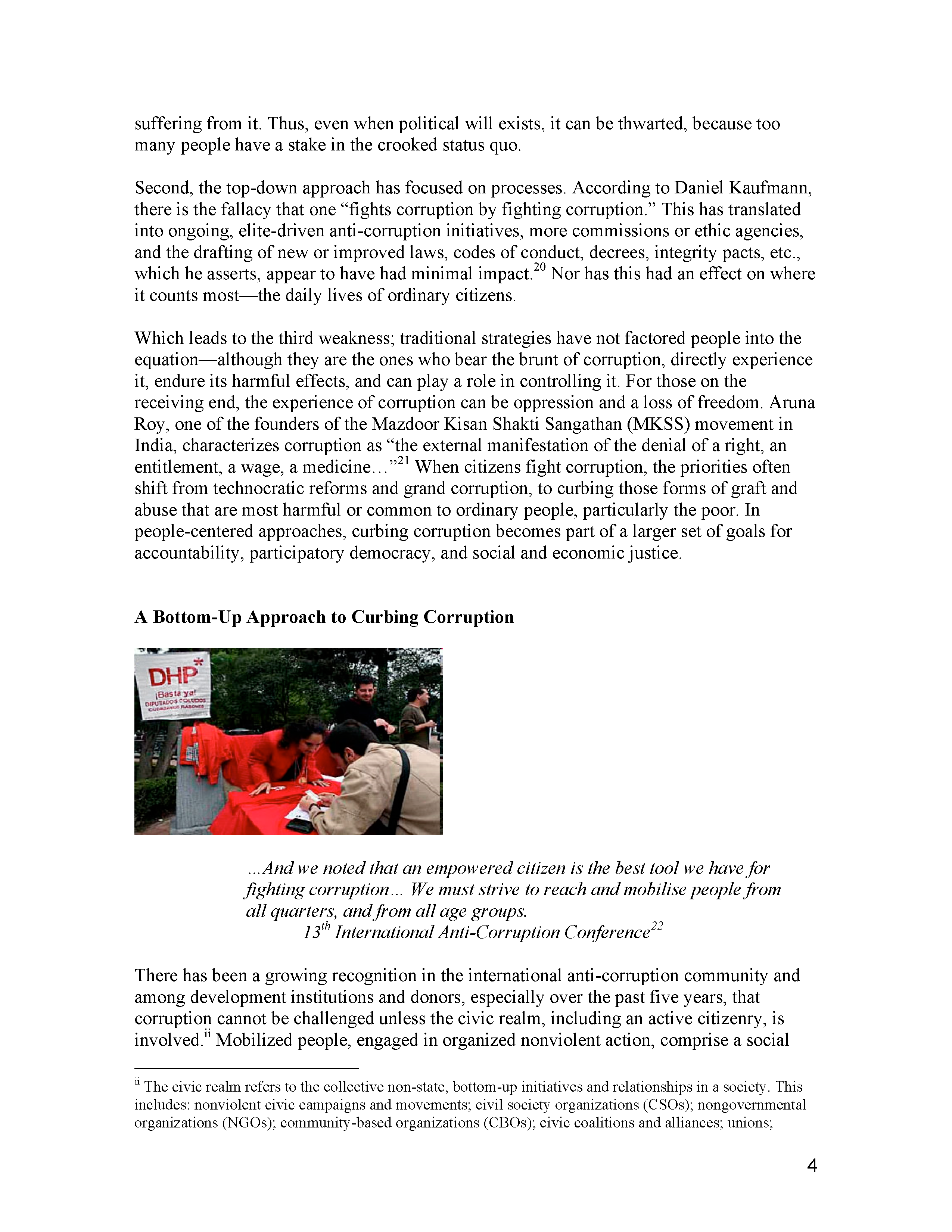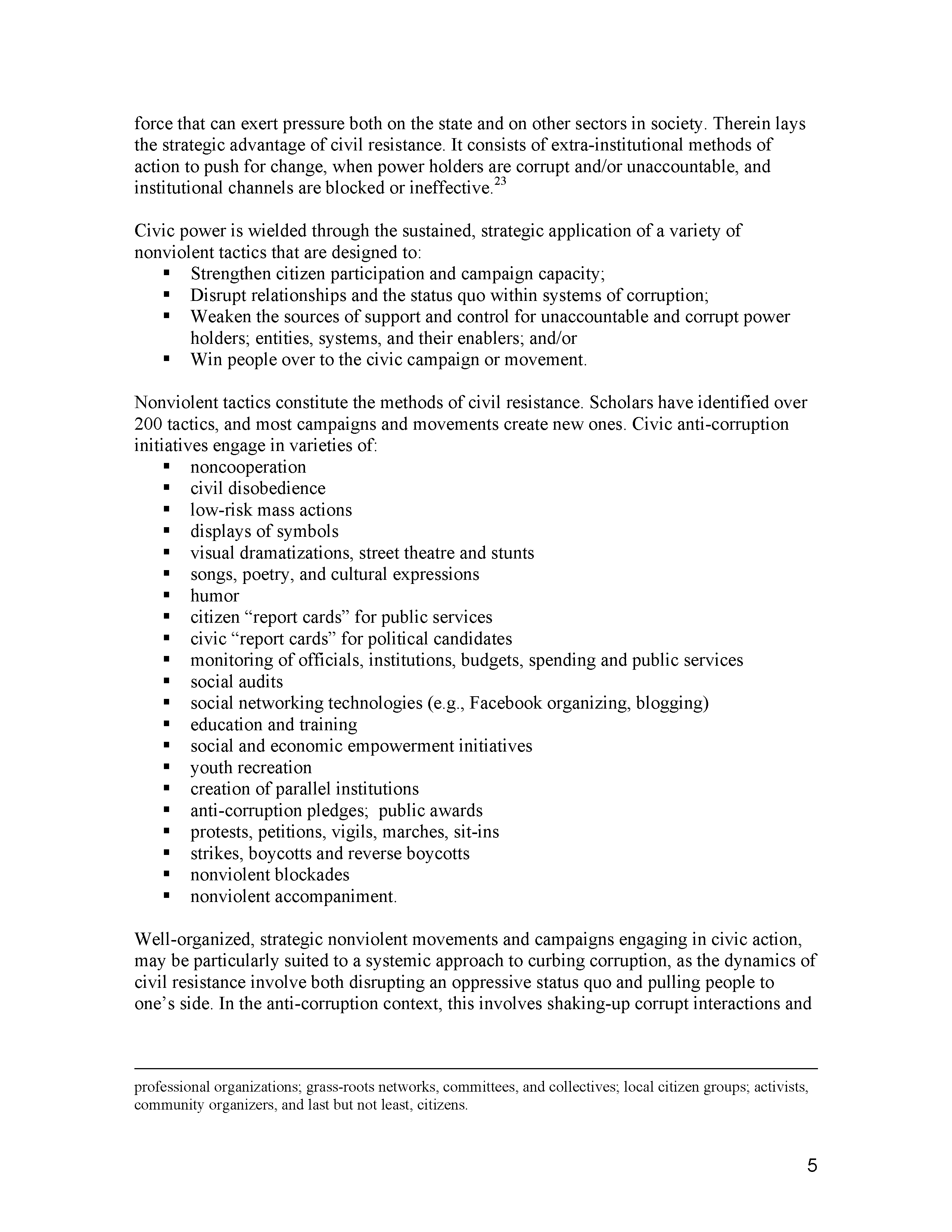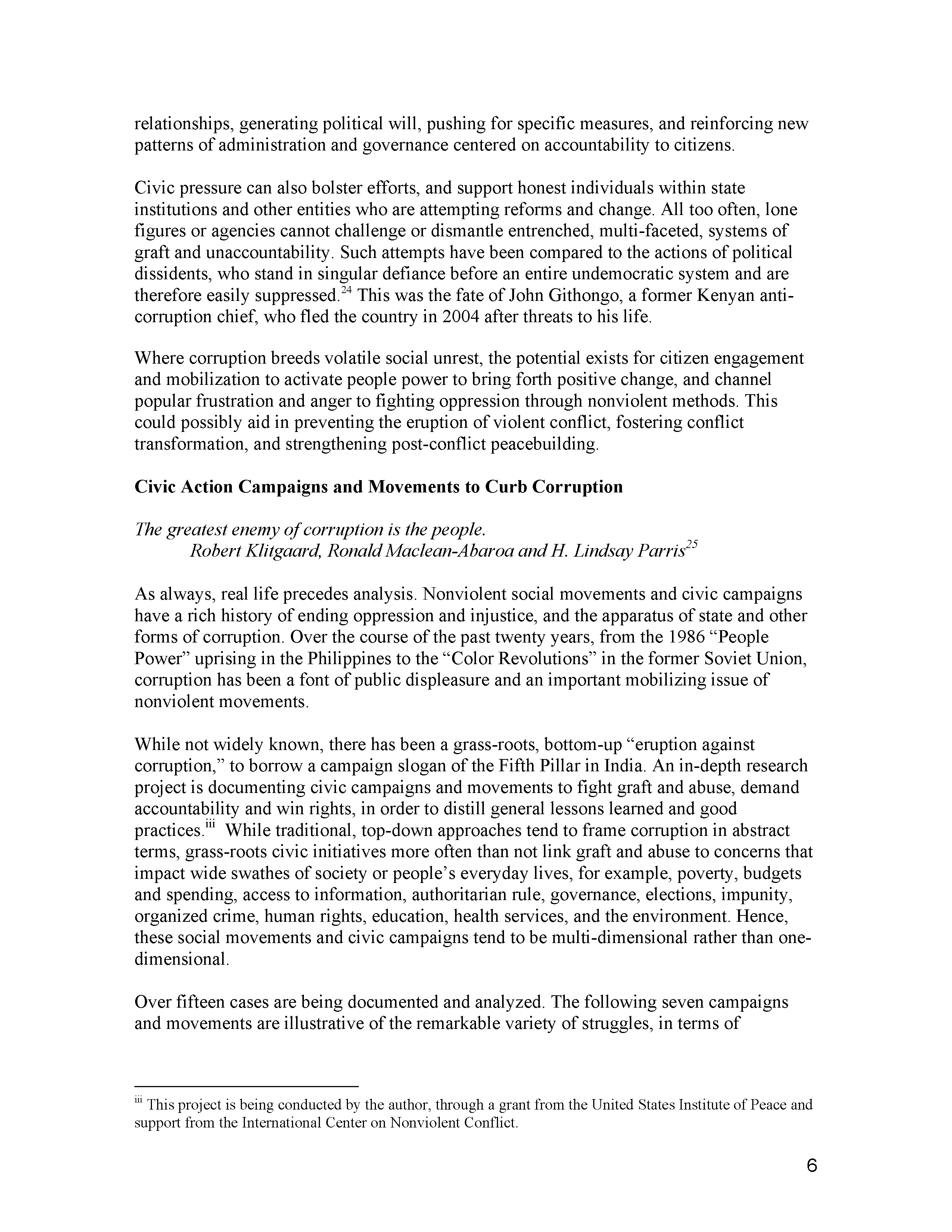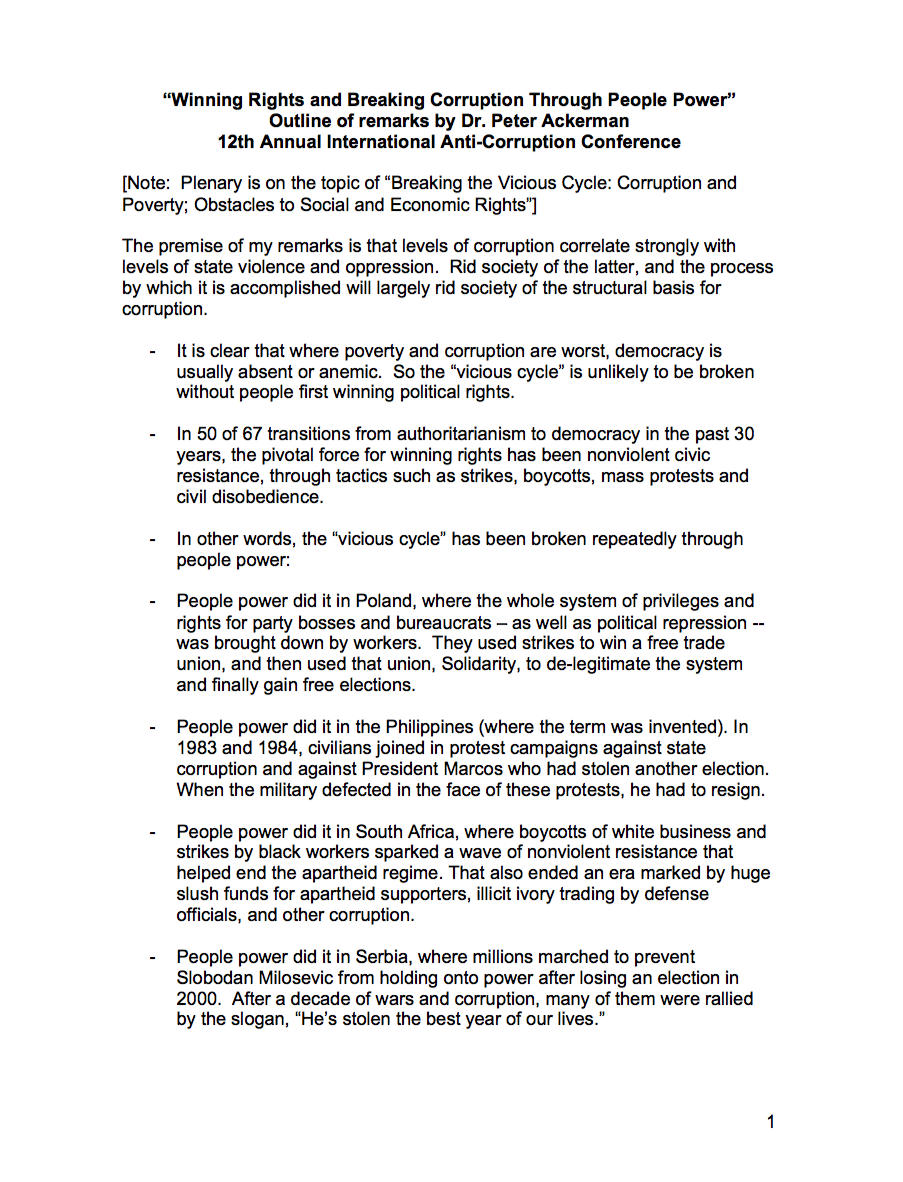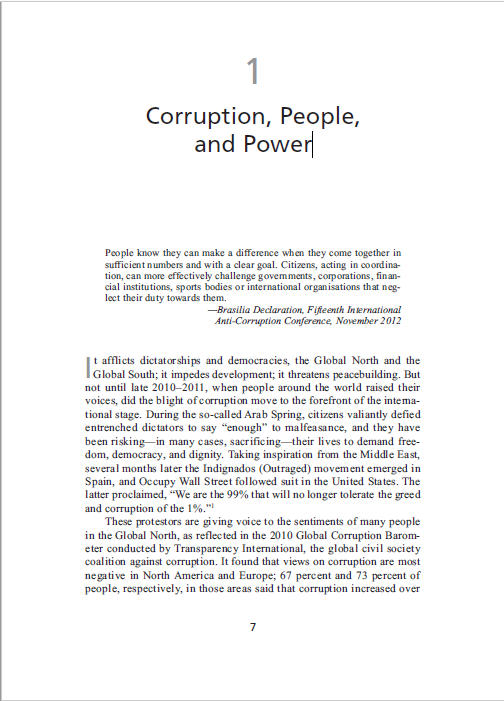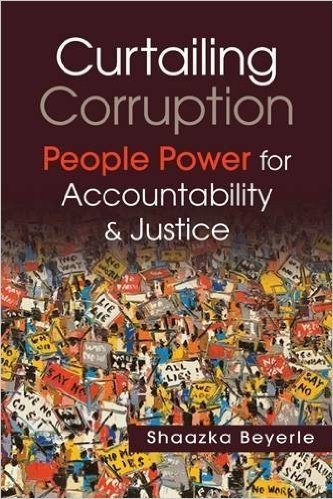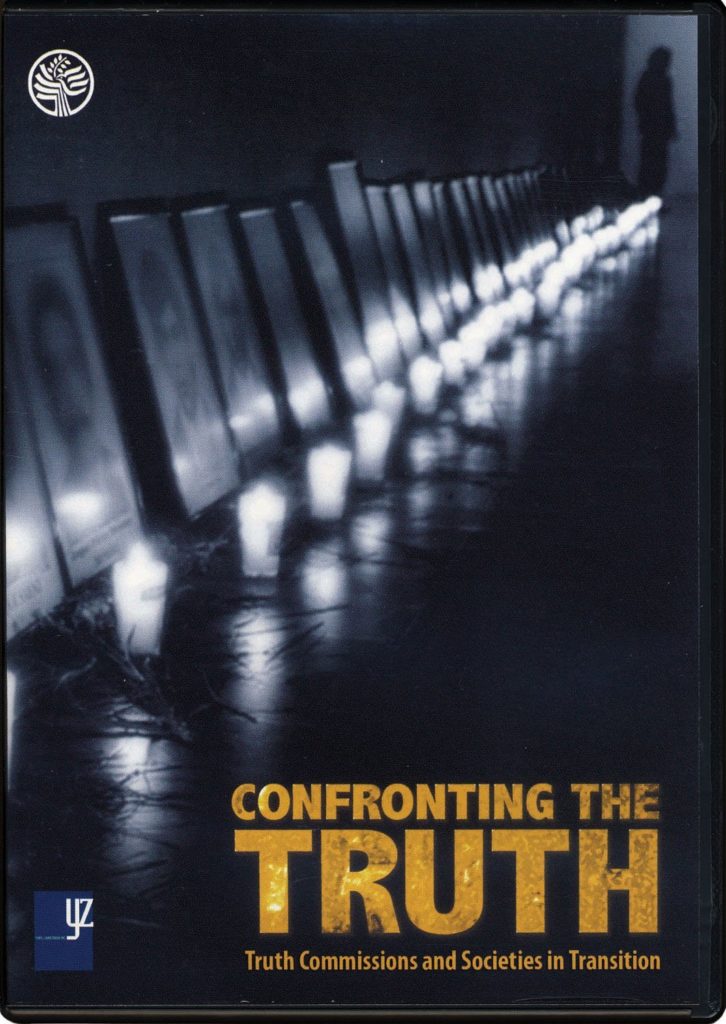People Count: How Citizen Engagement and Action Challenge Corruption and Abuse
This paper will: explore the linkages between corruption, violence and poverty; identify the conceptual and practical limitations of top-down, technical approaches to combating corruption; articulate a bottomup approach in which the civic realm is included in the anti-corruption equation; and explore recent cases of civic action campaigns and movements to curb corruption and win
accountability.
By Shaazka Beyerle, Senior Advisor at the International Center on Nonviolent Conflict
Revised version of a paper first presented at the International Peace Research Association Conference, Sydney, Australia — July 2010


